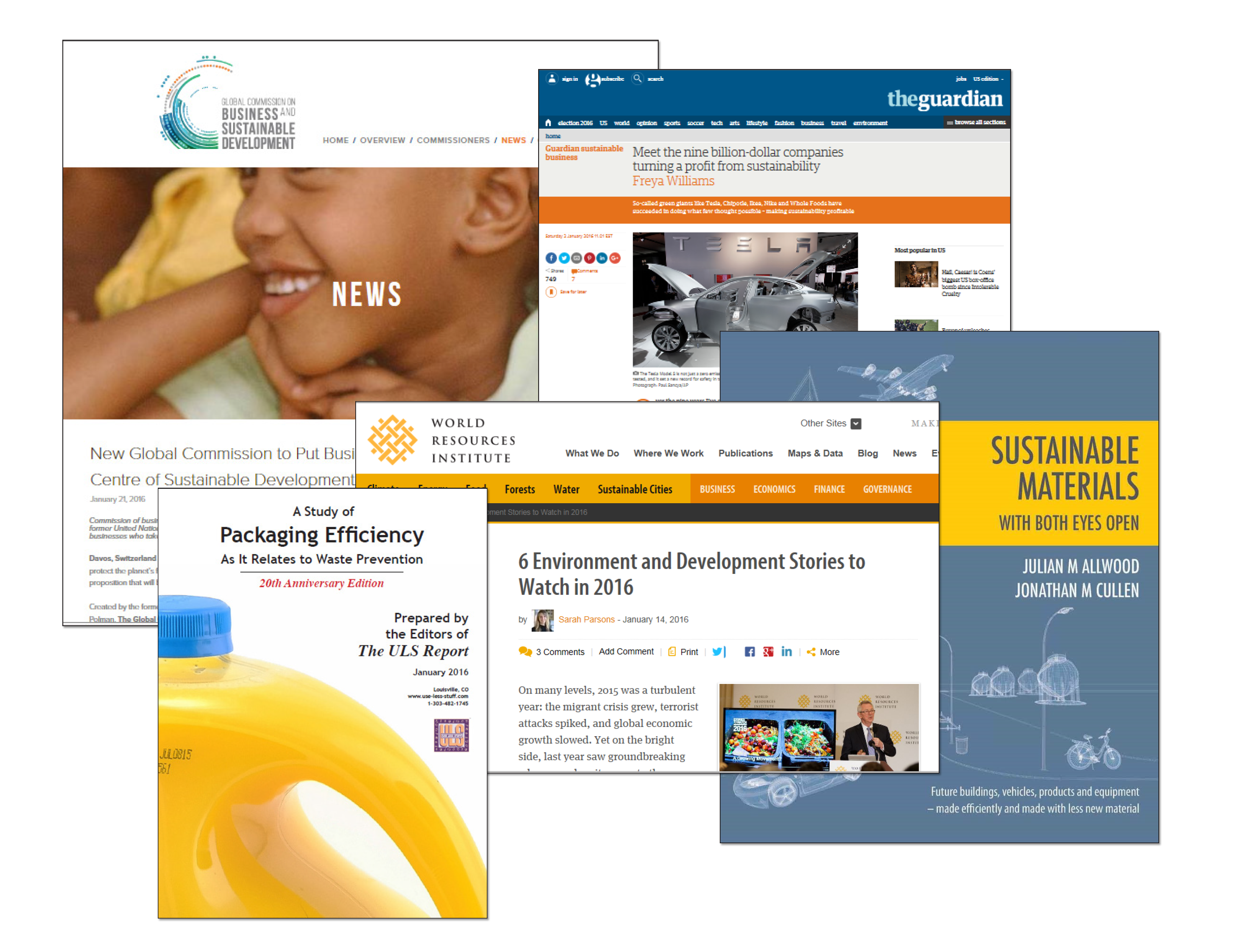We hear a lot from the recycling, composting and sustainability world about why it is beneficial to be proactive and engaged in activities that will utilize our resources to their highest and best use. But what are main stream business leaders communicating in regards to sustainability? I decided to take a look at several influential leaders and their social media posts to get some insight.
Jeff Wooster, Global Sustainability Leader, Dow Chemical
From January 22, 2016, Jeff tweeted: “Emphasize the importance of #Lifecycle #Resource #Efficiency.” He linked to A Study of Packaging Efficiency as it Relates to Waste Prevention (Use Less Stuff). The study, which was previously performed in 1995 and 2007, highlighted source reduction playing a primary role in reducing packaging waste, and recovery for recycling as having an increasingly important role.
 Richard Branson, Founder, Virgin Group
Richard Branson, Founder, Virgin Group
From January 21, 2016, Richard tweeted: “A new initiative putting #Business at the centre of #SustainableDevelopment” with a link to the New Global Commission to Put Business at the Centre of Sustainable Development (Global Commission on Business and Sustainable Development – GCBSD). The commission, launched at the 2016 World Economic Forum and created by former UN deputy secretary general Mark Malloch-Brown and Unilever CEO Paul Polman, will develop the business case for companies to engage in achieving Sustainable Development Goals (SDGs) by 2030.
Teresa Clark, VP Product Development, ENSO Plastics
From January 14, 2016, Teresa tweeted: “Great article outlining the strategies that are successful in creating highly profitable sustainable companies…” She linked to Meet the nine billion-dollar companies turning a profit from sustainability (Freya Williams, The Guardian). The article focused on nine (soon to be ten) “green giants” that generate a billion dollars or more in annual revenue from their sustainable/socially good products or services and the six factors that have enabled their “green” success. SPOILER ALERT: These top nine include Tesla, Chipotle, Ikea, Unilever, Nike, Toyota, Natura, Whole Foods, and GE’s Ecomagination. Who is the possible number ten? Target.
Paul Polman, CEO, Unilever
On January 15, 2016, Paul tweeted: “Great thoughts @AndrewSteerWRI. Momentum building. 6 Environment and Development Stories to Watch…” and linked to 6 Environment and Development Stories to Watch in 2016 (Sarah Parsons, WRI). Sarah summarized the six stories to watch as outlined by Andrew Steer, president and CEO of World Resource Institute – many centered on those SDGs from the GCBSD mentioned in the Richard Branson link above.
What is the RRS leadership reading?
Susan Graff, VP Global Corporate Sustainability, RRS
Susan recommends Sustainable Materials with Both Eyes Open (Allwood, Cullen) – also one of Bill Gates’ books to read from his December 2015 post on Gates Notes. Susan highlighted a poignant moment early in the book, on page 13 in fact, that walks the reader through the identification of the five key materials that account for 55% of industrial emissions. SPOILER ALERT: The key five are steel, cement, plastic, paper and aluminum.
“The question becomes how do we remain responsible environmental stewards and meet the growing demand for goods, buildings and infrastructure through product and packaging innovations that lower carbon emissions?” says Susan. “This University of Cambridge researcher team astutely points out that looking at the problem ‘with both eyes open’ enables us to see solutions at both design and disposal stages of the product life cycle..”
What have you read recently that gives an indication of where our next steps will land in 2016? Let us know in the comments section below.

